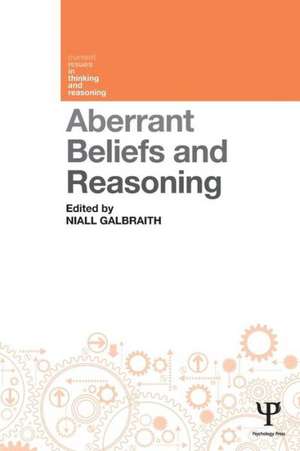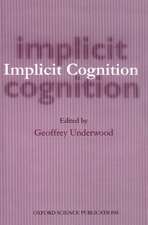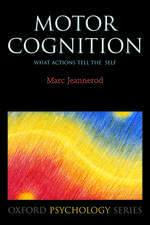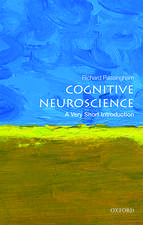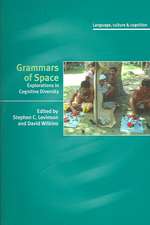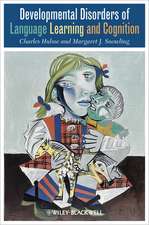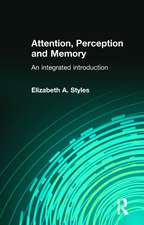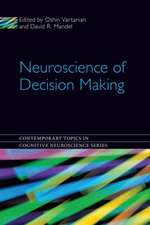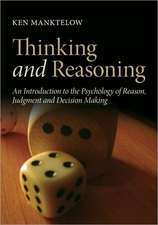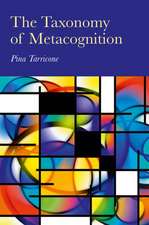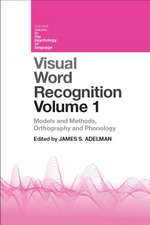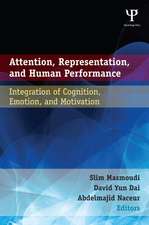Aberrant Beliefs and Reasoning: Current Issues in Thinking and Reasoning
Editat de Niall Galbraithen Limba Engleză Paperback – 11 sep 2014
The chapters consider several conjectures about the role of reasoning in aberrant belief, including the role of the jumping to conclusion bias in delusional beliefs, the probabilistic bias in paranormal beliefs, the role of danger confirming reasoning in phobias, and the controversial notion that people with schizophrenia do not succumb to specific forms of reasoning bias. There are also chapters evaluating different theoretical perspectives, and suggestions for future research.
Aberrant Beliefs and Reasoning is the first volume presenting an overview of contemporary research in this growing subject area. It will be essential reading for academics and students in the fields of human reasoning, cognitive psychology and philosophy, and will also be of great interest to clinicians and psychiatrists.
| Toate formatele și edițiile | Preț | Express |
|---|---|---|
| Paperback (1) | 382.65 lei 6-8 săpt. | |
| Taylor & Francis – 11 sep 2014 | 382.65 lei 6-8 săpt. | |
| Hardback (1) | 998.71 lei 6-8 săpt. | |
| Taylor & Francis – sep 2014 | 998.71 lei 6-8 săpt. |
Preț: 382.65 lei
Nou
Puncte Express: 574
Preț estimativ în valută:
73.23€ • 79.52$ • 61.51£
73.23€ • 79.52$ • 61.51£
Carte tipărită la comandă
Livrare economică 23 aprilie-07 mai
Preluare comenzi: 021 569.72.76
Specificații
ISBN-13: 9781848723429
ISBN-10: 1848723423
Pagini: 192
Ilustrații: 9 black & white illustrations, 1 black & white tables, 9 black & white line drawings
Dimensiuni: 156 x 234 x 10 mm
Greutate: 0.29 kg
Ediția:1
Editura: Taylor & Francis
Colecția Psychology Press
Seria Current Issues in Thinking and Reasoning
Locul publicării:Oxford, United Kingdom
ISBN-10: 1848723423
Pagini: 192
Ilustrații: 9 black & white illustrations, 1 black & white tables, 9 black & white line drawings
Dimensiuni: 156 x 234 x 10 mm
Greutate: 0.29 kg
Ediția:1
Editura: Taylor & Francis
Colecția Psychology Press
Seria Current Issues in Thinking and Reasoning
Locul publicării:Oxford, United Kingdom
Cuprins
Introduction, Niall Galbraith 1. A psychological model of delusional belief: Integrating reasoning biases with perceptual, self-concept and emotional factors, Niall Galbraith and Ken Manktelow 2. Prediction-error and two-factor theories of delusion formation: Competitors or allies? Kengo Miyazono, Lisa Bortolotti and Matthew R. Broome 3. Reasoning and delusions: Do people with delusions really jump to conclusions? Rob Dudley and Kate Cavanagh 4. Affect, Dual Processes and some Pertinent Questions about Delusional Reasoning. Stephanie Rhodes and Claire Jones 5. Reasoning in schizophrenia. Amelia Gangemi and Valentina Cardella 6. Paranormal believers’ proneness to probabilistic reasoning biases: A review of the empirical literature. Paul Rogers 7. Danger-confirming reasoning and the persistence of phobic beliefs. Peter J. de Jong 8. Non-pharmacological Treatment Targeting Cognitive Biases underlying Delusions in Schizophrenia: Metacognitive Training and Therapy. Ryan Balzan, Todd S. Woodward, Mahesh Menon and Steffen Moritz
Recenzii
"Aberrant Beliefs and Reasoning will be required reading for everyone interested in understanding human rationality. The editor provides an excellent introductory overview of the field, and the further chapters advance research in this area whilst remaining accessible to the general reader. " – David Over, Department of Psychology, Durham University, UK
"Aberrant Beliefs and Reasoning will be an important resource for researchers of delusions – it offers new insights into dual-process theories of reasoning, meta-cognitive training, the role of affect, and the relationship between two-factor and prediction-error theories." – Robyn Langdon, ARC Centre of Excellence in Cognition and its Disorders and Department of Cognitive Science, Macquarie University, Australia
"Aberrant Beliefs and Reasoning will be an important resource for researchers of delusions – it offers new insights into dual-process theories of reasoning, meta-cognitive training, the role of affect, and the relationship between two-factor and prediction-error theories." – Robyn Langdon, ARC Centre of Excellence in Cognition and its Disorders and Department of Cognitive Science, Macquarie University, Australia
Descriere
This volume concerns the thinking processes and biases which are a factor in the development and maintenance of delusional or aberrant beliefs. It provides a review, synthesis and critique of the most prominent theories, in light of recent evidence in the field, and encompasses cognitive, philosophical and clinical orientations. It will be of great interest to researchers and students with an interest in cognitive psychology and philosophy, and also to clinicians including psychologists, psychiatrists and psychiatric nurses.
